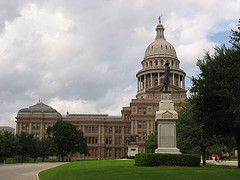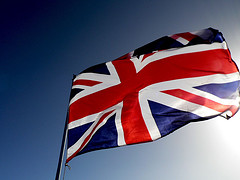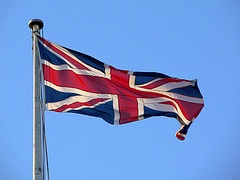Copyright 2007-25 Digital Media Law Project and respective authors. Except where otherwise noted,
content on this site is licensed under a Creative Commons Attribution-Noncommercial-ShareAlike 3.0 License: Details.
Use of this site is pursuant to our Terms of Use and Privacy Notice.
content on this site is licensed under a Creative Commons Attribution-Noncommercial-ShareAlike 3.0 License: Details.
Use of this site is pursuant to our Terms of Use and Privacy Notice.


 Last week the
Last week the  Imagine you live in a country where criminal attacks on civilians are alarmingly familiar, and reliable reporting from the local media is regrettably unfamiliar. You hear about an attack on your local school, so you take to the Internet to spread the word on Facebook and Twitter to warn people before it's too late. Mercifully, the report you heard was mistaken, and everything's okay...
Imagine you live in a country where criminal attacks on civilians are alarmingly familiar, and reliable reporting from the local media is regrettably unfamiliar. You hear about an attack on your local school, so you take to the Internet to spread the word on Facebook and Twitter to warn people before it's too late. Mercifully, the report you heard was mistaken, and everything's okay...
 Strategic lawsuits against public participation, or SLAPPs, are one of the most bullying types of litigation out there. But while the majority of US states have enacted special
Strategic lawsuits against public participation, or SLAPPs, are one of the most bullying types of litigation out there. But while the majority of US states have enacted special  I've been writing about impending British libel reform for almost two years now, putting a post together every time something happens to bring the United Kingdom closer to fixing its quite-literally-backwards defamation laws. "Ooo, the High Court has tossed a textbook libel tourism case," I cheered in
I've been writing about impending British libel reform for almost two years now, putting a post together every time something happens to bring the United Kingdom closer to fixing its quite-literally-backwards defamation laws. "Ooo, the High Court has tossed a textbook libel tourism case," I cheered in  I'm excited to welcome Joel Sage as a guest blogger.
I'm excited to welcome Joel Sage as a guest blogger.
 After enacting a colossally backward law in recent weeks that undermined Utah's open records law, the Utah government is now considering a repeal of the bill that earned Utah the Society of Professional Journalists' inaugural
After enacting a colossally backward law in recent weeks that undermined Utah's open records law, the Utah government is now considering a repeal of the bill that earned Utah the Society of Professional Journalists' inaugural  The reform of British libel law has been something of a will o' the wisp in recent years. Every few months it seems, the issue jumps to the fore, either through
The reform of British libel law has been something of a will o' the wisp in recent years. Every few months it seems, the issue jumps to the fore, either through  I've no doubt that CMLP blog readers, fellow netizens that you are, are well aware of an Italian court's conviction last week of three Google executives for invasion of privacy of an Italian teenager.
I've no doubt that CMLP blog readers, fellow netizens that you are, are well aware of an Italian court's conviction last week of three Google executives for invasion of privacy of an Italian teenager.
 Just over a year ago, the rumormonger—and some would say defamatory—website
Just over a year ago, the rumormonger—and some would say defamatory—website  Today, the
Today, the  Rejoice, all ye Olympian fans, the International Olympic Committee ("IOC") has said that its athletes can use Twitter!
Rejoice, all ye Olympian fans, the International Olympic Committee ("IOC") has said that its athletes can use Twitter!
 I have a pet theory that perfect informational transparency would make the world a more civil place. Sure, it might be embarrassing to reveal our personal secrets and foibles to the world, but the tradeoff would be that you'd know when someone was talking out of both sides of their mouth. In such a world, maybe that senator wouldn't be quite so holier-than-thou when the public knows about
I have a pet theory that perfect informational transparency would make the world a more civil place. Sure, it might be embarrassing to reveal our personal secrets and foibles to the world, but the tradeoff would be that you'd know when someone was talking out of both sides of their mouth. In such a world, maybe that senator wouldn't be quite so holier-than-thou when the public knows about  If you're a regular user of the Webtubes—and if you're reading this blog, you probably are—you're well aware of the kerfuffle that ensued after Google's decision to cease its search-engine operations in China. And naturally, it's now become a political issue between the US and China. A recap, in brief:
If you're a regular user of the Webtubes—and if you're reading this blog, you probably are—you're well aware of the kerfuffle that ensued after Google's decision to cease its search-engine operations in China. And naturally, it's now become a political issue between the US and China. A recap, in brief:


